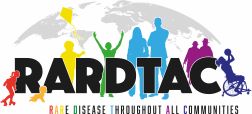Carer reported experiences published: supporting someone with a rare disease

Caring for someone with a rare disease, both formally and informally can be an extremely demanding role requiring intense and unique care tailored to each individual’s specific needs. The impact of caring for someone with a rare disease can be seen in many areas of an individual’s life including psychologically, economically, physically and logistically. The importance of good mental and physical health for the carer is vital to ensure they are able to sustain the essential role which they provide for the individual they care for. Neglecting to look after themselves can have devastating consequences on each carer’s own health, which directly impacts the person they care for.
At the end of 2019, our rare disease research team at QUB conducted an online survey with those who care for someone with a rare disease. Questions were focused on caring responsibilities, interactions with health care and support services, networking, communication and future improvements. Additionally, in January 2020, we facilitated a workshop to enable carers to network, discuss challenges and potential solutions with their peers. Many thanks to everyone in the rare disease community who participated in these events – we can’t make the best recommendations for change without your help so THANK YOU!
Fifty-seven respondents participated in the survey, with 56 identifying the person they care for as a family member. Thirty-two attendees were part of the facilitated workshop. While carers reported several positive aspects of their caring role, the majority of comments highlighted challenges such as sub-optimal interactions with healthcare professionals, insufficient (or absent) emotional, psychological and social support, lack of financial support, and lack of awareness of existing support services. All respondents stated that caring for a person with a rare disease impacted their mental health. The impact reported was overwhelmingly negative with respondents’ comments such as, ‘Exhausting while mentally and physically draining’. The majority of respondents described medical appointments, dealing specifically with rare disease as a negative experience with 80.7% feeling medical professionals did not have sufficient knowledge to look after those with a rare disease. Half of respondents were involved in one or more support groups, with the majority reporting their need had been met.
The first topic for discussion at the workshop focused on the positive aspects of being a carer. Carers reported feeling a sense of pride; being able to help the person to enjoy life; giving life purpose and fulfilment; and gaining an increased medical knowledge. This was followed by discussion of the biggest challenges for carers.
Biggest challenges when caring for someone with a rare disease.
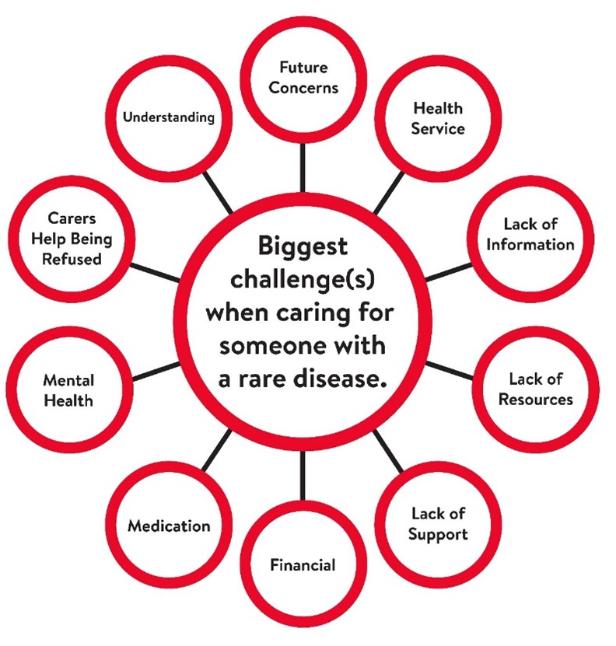
Themes of priorities that would help most in caring for someone with a rare disease.
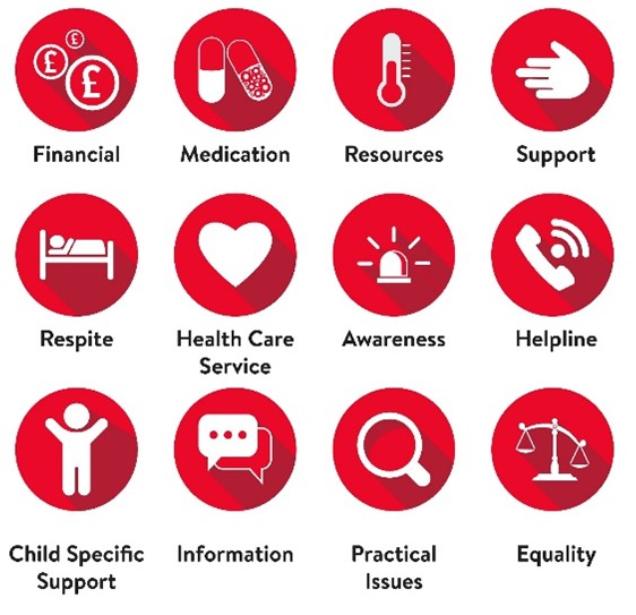
Interactions with healthcare professionals HCPs was highlighted as a major hurdle and carers stressed their need to be taken seriously in such settings. Ideas such as a feedback system for HCPs and raising awareness of the importance of treating individuals with rare diseases, and those caring for them, with dignity and respect were suggested. Insufficient emotional, psychological and social support were highlighted with an advice helpline suggested as an approach to help. Financial support was discussed with many carers explaining that carers allowance is not sufficient and many are not considered eligible to receive it. There was a consensus that carers should be recognised and adequately paid for their role. Carers requested information on services such as respite and where to access specific equipment.
What is needed to enable effective respite care
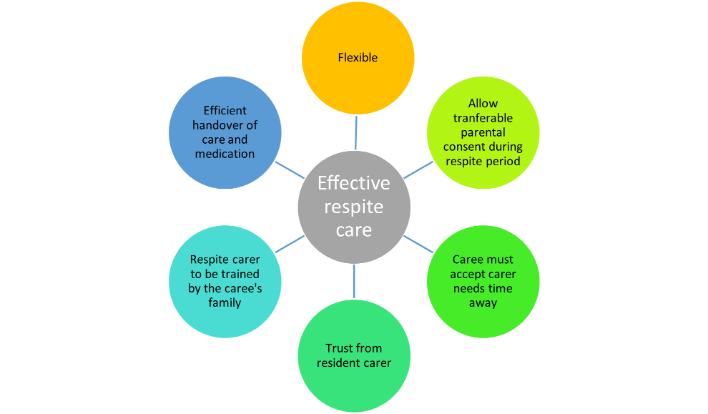
Carers of those with a rare disease are asking for better access to psychosocial support, better financial provision for their substantive role, improved access to helpful information to give clarity for the future, training to assist them in their role, and options for respite care. Furthermore, they have requested improved interactions with HCP’s and primary carers that encompasses both understanding and recognition of carer’s crucial role in the life of whom they care for. It is important that strategies are put in place to ensure that carers take the time they need to care for themselves and raise awareness of available support options for carers of people with a rare disease(s) from health and social care providers, charities, or support groups.
An early version of this paper prior to peer review was made publicly available on MedRxiv: News | Rare Disease Focus: supporting rare disease throughout all communities (qub.ac.uk)
The final version of our peer-reviewed, published paper is available to view at the following links: http://doi.org/10.1111/hsc.13336 ; Carer reported experiences: Supporting someone with a rare disease - McMullan - - Health & Social Care in the Community - Wiley Online Library
McMullan, J., Crowe, A., Downes, K., McAneney, H., McKnight, AJ. (2021). Carer reported experiences: supporting someone with a rare disease. Health and Social Care in the Community, early online version.
Final version in print in the May 2022 issue of Health Soc Care Community. 2022;30:1097–1108.
This summary document of available resources identified through our RARDTAC project may be downloaded from here: Support for Rare Disease Carers in Northern Ireland — Queen's University Belfast (qub.ac.uk)
JM is supported by funding support from the Medical Research Council – Northern Ireland Executive support of the Northern Ireland Genomic Medicine Centre though Belfast Health and Social Care Trust [MC_PC_16018]. AC is supported by a Department for the Economy PhD studentship award.
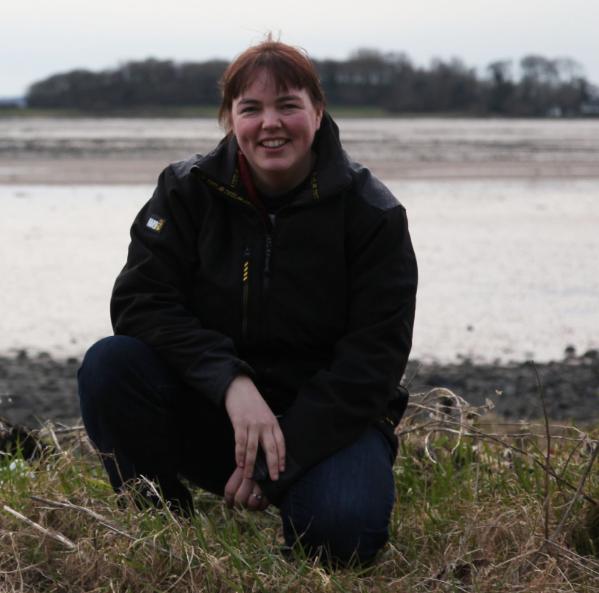
Media
For more information, please do get in touch via email

